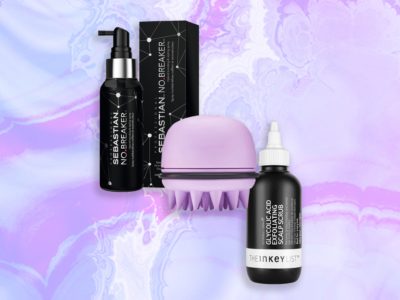
One last point from Ashar: “Really do your homework beforehand, and take that [information] with you to your appointment, rather than just going to your appointment and saying, ‘Oh, I want to take this.’ There’s certainly new evidence coming out every day. But [your doctor] should take the time to look and see how [the supplement] fits into your overall health picture.”
What to Know About the Interactions Between Some Supplement Ingredients and Medications
St. John’s Wort
St. John’s Wort is a flowering shrub that has long been used for depression, though medical studies of its efficacy are mixed and inconsistent. However, it has many drug interactions. Ashar notes that it “works on the liver and it interferes with the metabolism of a lot of drugs, including blood thinners” and it can reduce the efficacy of Wellbutrin, Xanax, methadone, birth control pills, and a number of other common medications.
Since it affects the body’s monoamine neurotransmitter system in similar ways to the MAOI (monoamine oxidase inhibitor) class of antidepressants, James Giordano, a professor of neurology and biochemistry at Georgetown University, says that foods high in tyramine should be avoided while taking St. John’s Wort.
Using St. John’s Wort in concert with antidepressant drugs, such as SSRIs (selective serotonin reuptake inhibitors), SNRIs (serotonin and norepinephrine reuptake inhibitors), and MAOIs, can cause serotonin syndrome, a potentially life-threatening condition. “Serotonin syndrome, although somewhat rare clinically, is very often seen in those situations where individuals either mix prescription drugs that are serotenergically active or utilize serotenergically active drugs at a higher dose or an escalated dose in an unregulated way, and/or in these situations, where they’re then mixing a phytomedicinal like hypericum perforatum, St. John’s Wort, with the serotenergically acting drug,” explains Giordano.
The effects of serotonin syndrome range from hypertension (high blood pressure) and tachycardia (a dangerously elevated heart rate) to seizures and respiratory failure. Giordiano describes it as being “characterized by increasing agitation, restlessness, changes in body temperature, and a very representative clinical sign called ‘wet dog shakes.'” But it’s not just that serotonin syndrome is just unpleasant to experience. “The level of agitation, the increase in anxiety, the variations of body temperature, which make the individual feel peculiar and feel uncomfortable, but the escalations in body temperature could be problematic — physiologically, pathologically problematic — and they could also result in changes in the rhythm of the heart,” explains Giordano.
Ginkgo Biloba
Another supplement that’s frequently advertised as improving brain function is ginkgo biloba, a tree whose leaves are used to make an extract that has been used in traditional Chinese medicine for thousands of years. Though it is touted as a potential preventative and/or cure for dementia, there is no conclusive evidence to these ends, as the NIH notes. Many studies, including the 3000-person Ginkgo Evaluation of Memory Study, have been conducted, but results are often conflicting.





